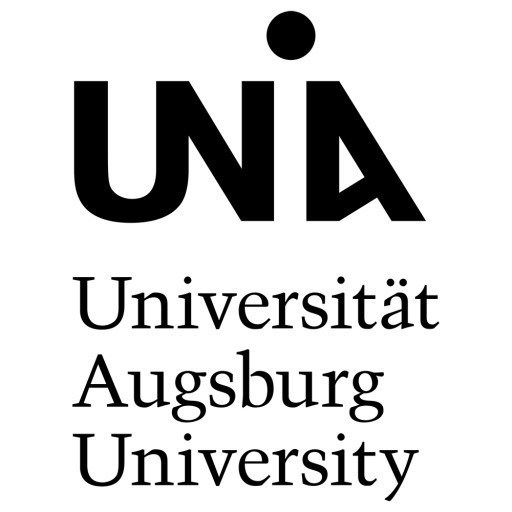Photos of university / #uni.augsburg
History of the University of Augsburg:
The University of Augsburg was established in 1970 as a response to the growing demand for higher education in the region of Swabia, Bavaria, Germany. It was officially founded with the goal of promoting academic excellence and fostering regional development through research and education. Initially, the university started with a focus on humanities, economics, and social sciences, gradually expanding its academic portfolio over the years. Throughout the 1970s and 1980s, the university experienced significant growth in student enrollment and faculty, establishing new departments and research centers. In the 1990s, the University of Augsburg intensified its focus on interdisciplinary research and international collaboration, which contributed to its rise in academic rankings. The university emphasizes a student-centered approach and maintains close ties with industry and the regional economy to ensure that graduates are well-prepared for professional life. Today, the university offers a broad range of undergraduate, master's, and doctoral programs across various disciplines, including economics, law, engineering, natural sciences, and humanities. The university is committed to promoting diversity, sustainability, and innovative research, making it a prominent institution in southern Germany. Over the past decades, the University of Augsburg has grown into a modern, vibrant university with a reputation for high-quality teaching and research that actively contributes to regional and national development.
Application requirements for the University of Augsburg vary depending on the program and applicant's country of origin. Generally, prospective students must submit completed application forms, proof of secondary education qualifications (such as high school diploma or equivalent), and verified transcripts demonstrating their prior academic achievements. For international applicants, proof of language proficiency in German (such as TestDaF or DSH) or English (such as TOEFL or IELTS) is usually required, depending on the language of instruction of the chosen program. Additionally, some programs may require specific entrance examinations or interviews to assess suitability and motivation. Applicants from non-EU countries should also ensure they meet visa requirements and include documentation demonstrating financial capacity to support themselves during their studies. The application process is primarily conducted online via the university's admission portal or through official university application platforms. It is essential to pay attention to specific deadlines, which differ for undergraduate and postgraduate programs and for international versus domestic students. The University of Augsburg also encourages prospective students to review the specific admission requirements listed on the university’s official website for each program to ensure all criteria are met. Verification of foreign qualifications through recognized credential evaluation agencies may be necessary for some applicants. Furthermore, applicants are advised to prepare a motivation letter, CV, and letters of recommendation if required by the program. After submission, applications are reviewed by the respective faculties, and successful applicants will receive an offer of admission. It is important to follow all instructions precisely and provide accurate information to avoid delays or rejection of the application. The university also offers consulting services and detailed guidance for international applicants to facilitate the application process.
University accreditation at the University of Augsburg is conducted through a rigorous process that ensures the institution meets high standards of quality and academic excellence. The university is accredited by the Bavarian Ministry of Science and the Arts, which oversees higher education institutions in Bavaria, in accordance with national and European regulations. The accreditation process involves comprehensive evaluations of the university’s strategic planning, research activities, teaching quality, governance, and resource management. In addition to state accreditation, specific study programs at the University of Augsburg undergo accreditation by recognized accrediting agencies such as ACQUIN (Akkreditierungsagentur accredita e.V.) to ensure they meet international quality standards. Accreditation is periodically reviewed through monitoring and re-accreditation procedures to maintain continuous quality assurance. The university's commitment to quality is reflected in its adherence to the European Standards and Guidelines for Quality Assurance in Higher Education (ESG). Furthermore, the university actively participates in national and European quality assurance initiatives, which help promote transparency and accountability. The accreditation status enables students to be assured of the high standard of education provided, and it allows the university to compete effectively for research grants and international cooperation. Overall, the accreditation process at the University of Augsburg is a vital component of its mission to provide excellent higher education, foster research innovation, and contribute to societal development.
Strengths include its interdisciplinary focus, promoting collaboration across various fields of study. The University of Augsburg offers a wide range of degree programs in humanities, social sciences, economics, natural sciences, and law, providing students with diverse academic options. The university emphasizes research-led teaching, encouraging students to engage in cutting-edge research projects that enhance their academic experience and career prospects. Its location in Augsburg, a vibrant city with a rich history and proximity to major economic centers like Munich and Nuremberg, offers students excellent internship and employment opportunities. The university fosters an international atmosphere, with numerous exchange programs, partnerships with institutions worldwide, and support for international students, making it an ideal environment for global learning and cultural exchange. Modern facilities, including well-equipped laboratories and study spaces, support effective learning and innovation. The university also values sustainability and social responsibility, integrating these themes into its curriculum and campus initiatives. Dedicated support services assist students throughout their studies, promoting personal development and success. Community engagement and a strong sense of belonging are cultivated through various student organizations, events, and initiatives. Overall, students choose the University of Augsburg for high-quality education, a supportive environment, international opportunities, and its commitment to research and social values, making it a comprehensive choice for higher education in Germany.
